featured
Ohio bill to scale back cannabis legalization passed by House (Newsletter: October 23, 2025)
Published
4 hours agoon
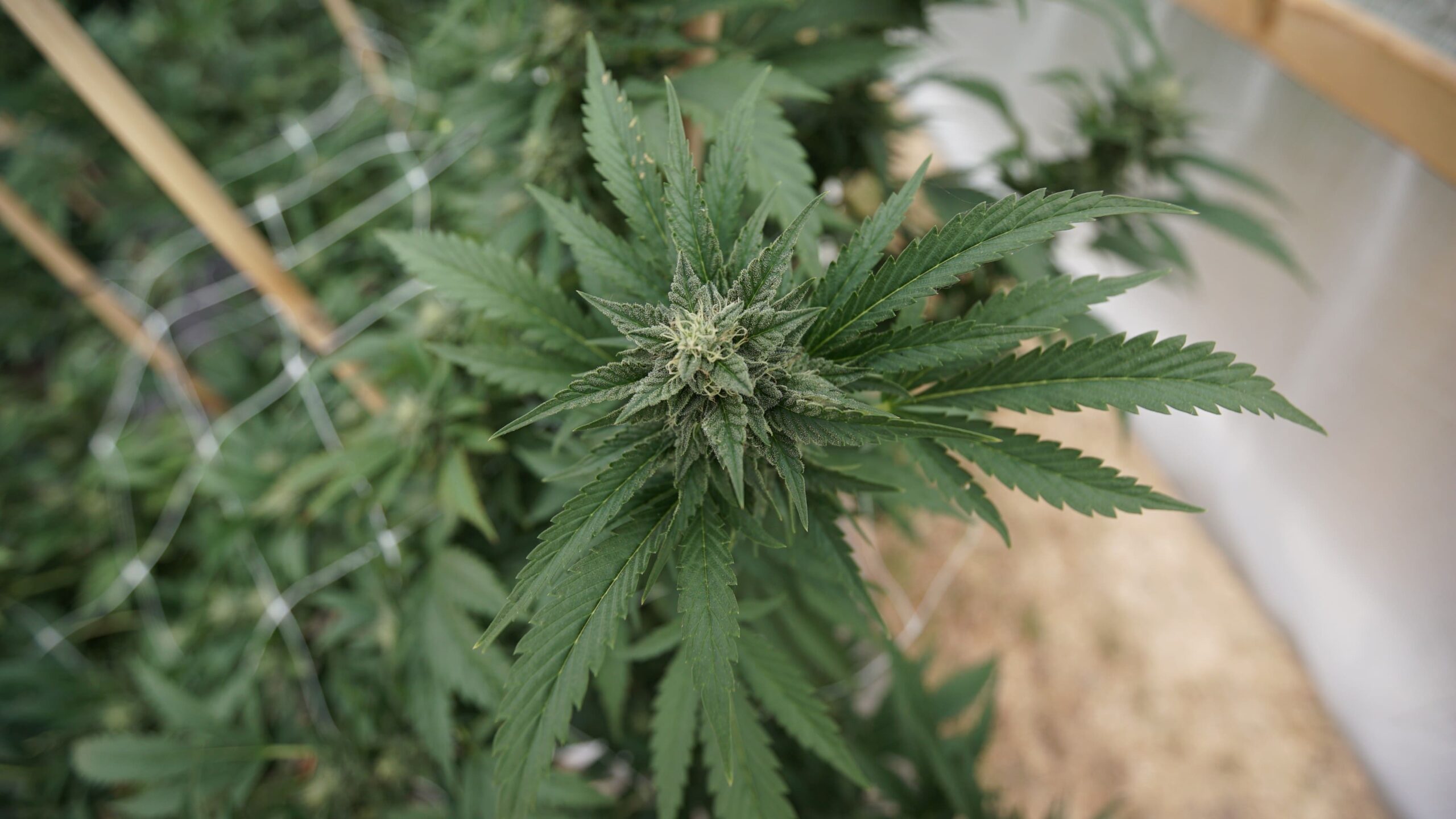
WI medical marijuana hearing; FDA petition on cannabis testing device; MA recriminalization initiative “on track”; NH 2026 cannabis/psychedelics bills
Subscribe to receive Marijuana Moment’s newsletter in your inbox every weekday morning. It’s the best way to make sure you know which cannabis stories are shaping the day.
Your support makes Marijuana Moment possible…
Your good deed for the day: donate to an independent publisher like Marijuana Moment and ensure that as many voters as possible have access to the most in-depth cannabis reporting out there.
Support our work at https://www.patreon.com/marijuanamoment
/ TOP THINGS TO KNOW
The Food and Drug Administration is considering a citizen petition raising concerns about the “significant harm” a drug testing device for marijuana metabolites in hair could cause if employers or law enforcement administer it under the mistaken impression it proves a person actually used cannabis rather than was exposed to secondhand smoke from someone else.
The Ohio House of Representatives passed a bill to revise the state’s voter-approved marijuana legalization law by removing some protections for consumers and adding new restrictions on intoxicating hemp products.
The Wisconsin Senate Health Committee held a hearing on a medical cannabis legalization bill sponsored by the Senate president and other Republican lawmakers—taking testimony from patients and other advocates.
A Massachusetts initiative to repeal key parts of the state’s marijuana legalization law is “on track” to qualify for the 2026 ballot—though some in the cannabis community are raising concerns about alleged instances where voters were approached by signature gatherers with misleading information before signing petitions.
Bipartisan New Hampshire lawmakers have filed requests for several marijuana, psychedelics and hemp bills they plan to introduce in the 2026 session—including measures to put legalization on the ballot, protect gun rights of medical cannabis patients and allow the therapeutic use of psilocybin.
The chair of the Rhode Island Cannabis Control Commission stepped down from the job ahead of launching a possible campaign for state attorney general.
/ FEDERAL
The U.S. Tax Court is considering a New Mexico medical cannabis company’s claim that the 280E tax penalty does not apply to it.
Former Rep. Matt Gaetz (R-FL) tweeted that new reports showing that alcohol industry companies are lobbying on hemp issues are “very telling.”
The House bill to seal federal marijuana conviction records got two new cosponsors for a total of five.
/ STATES
California Gov. Gavin Newsom (D) announced that enforcement efforts led to the seizure and destruction of more than $222 million worth of illegal cannabis from July to September 2025.
The Georgia House Blue-Ribbon Study Committee on Georgia’s Medical Marijuana and Hemp Policies will meet on Friday.
A Pennsylvania senator tweeted about the U.S. Supreme Court taking up a case on cannabis consumers’ gun rights, saying, “You’re either on the side of freedom or you’re not. Time to pick.”
A Florida judge began a monthslong hearing on a medical cannabis business licensing dispute.
Louisiana regulators filed changes to rules on who can issue medical cannabis recommendations.
Rhode Island regulators published a report on diversity in the cannabis industry.
Nevada regulators are asking marijuana businesses to complete a survey.
—
Marijuana Moment is tracking hundreds of cannabis, psychedelics and drug policy bills in state legislatures and Congress this year. Patreon supporters pledging at least $25/month get access to our interactive maps, charts and hearing calendar so they don’t miss any developments.![]()
Learn more about our marijuana bill tracker and become a supporter on Patreon to get access.
—
/ LOCAL
A cannabis company operations manager is running for a Glassboro Borough, New Jersey Council seat.
A Traverse City, Michigan advisory committee is considering a proposal to use marijuana revenue to fund improvements to a city-owned ski area.
/ INTERNATIONAL
Germany’s drug and addiction policy commissioner discussed his support for enacting new medical cannabis restrictions.
/ SCIENCE & HEALTH
A study found that “all phytocannabinoids reduced voluntary alcohol consumption in rats” but that “compounds differed in their effectiveness in reducing alcohol consumption and the side-effect profile.”
A study found that marijuana “decriminalization narrowed racial disparities in arrests in Chicago by reducing small quantity possession arrests for Black individuals and in Los Angeles by reducing large quantity possession arrests for both Black and Hispanic residents.”
/ ADVOCACY, OPINION & ANALYSIS
The Last Prisoner Project has a new acting executive director.
/ BUSINESS
Curio Wellness acquired four marijuana dispensaries in Missouri operating under the Greenlight brand.
Make sure to subscribe to get Marijuana Moment’s daily dispatch in your inbox.
Photo courtesy of Chris Wallis // Side Pocket Images.

Author: mscannabiz.com
MScannaBIZ for all you Mississippi Cannabis News and Information.
You may like
-


Millennials Are Spending Big on Luxury Travel
-


West Virginia Medical Marijuana Revenue Is Supposed To Support Drug Treatment Programs, But Sits Unspent As Officials Worry About Federal Prohibition
-
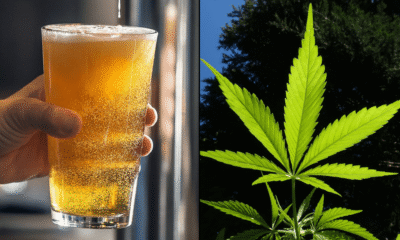

Frequent Marijuana Use Is Tied To Lower Risk Of Liver Disease From Alcohol, New Study Finds
-


FDA Weighs Petition On ‘Significant Harm’ Of Marijuana Hair Testing Device’s Positive Results From Secondhand Smoke
-
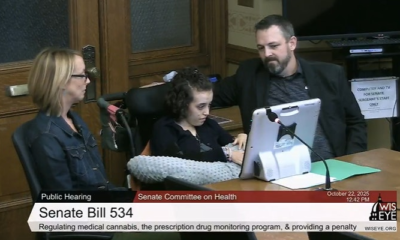

Wisconsin Lawmakers Rally for Medical Cannabis Legalization in Committee Hearing
-


Massachusetts Campaign To Roll Back Marijuana Legalization Law Is ‘On Track’ To Make 2026 Ballot, Spokesperson Says

Millennials redefine indulgence as experiences, not things — airlines adapt as Millennials are spending big on luxury travel.
Luxury isn’t what it used to be. For Millennials, adults in their 30s and early 40s, living luxuriously means swapping pricey gadgets, cars, and designer clothes for something else. Something their parents did later in life. Millennials are spending bing on luxury travel experiences. From Napa Valley wine tours to boutique ski resorts in Colorado, Millennials are redefining what it means to “treat yourself.” And it’s not just happening in the U.S.—they’re doing it worldwide.
RELATED: Gen Z Is Ditching Relationship Labels While Millennials
In the U.S., states like California, New York, Florida, and Texas are seeing a boom in experiential travel. Millennials are putting more of their disposable income into curated trips, wellness retreats, and boutique hotels—sometimes choosing these experiences over traditional material luxuries.
Globally, destinations are feeling the impact too. Millennials are flocking to Portugal’s Douro Valley for vineyard tours and Italy’s Amalfi Coast for boutique stays. In Asia, young travelers are splurging on private island resorts in the Maldives and eco-lodges in Bali. Even in Africa, safari trips in South Africa and Kenya are attracting Millennials looking for immersive, Instagram-worthy adventures.

Why the shift? Millennials came of age during tough economic times—from the Great Recession to rising housing costs and inflation. Many have decided memories beat things which depreciate quickly. Social media also plays a role: a picture-perfect vacation is now a status symbol in itself.
Millennials favor “quiet luxury”—understated but high-quality experiences. They prefer boutique hotels, local cuisine, private tours, and eco-friendly resorts over flashy, mass-market offerings. Whether it’s a wine tasting in California or a wellness retreat in Thailand, this generation seeks personalization, authenticity, and sustainability.
Airlines are taking notice. Carriers like Delta, Air France, and Emirates are rolling out perks aimed squarely at Millennials. Think flexible booking, wellness-focused amenities, upgraded seating options, and loyalty programs rewarding experiences rather than just miles. Boutique airline partnerships with resorts, curated city guides, and even “Instagram-ready” lounges cater to this generation’s desire for travel that’s luxurious but meaningful. Some airlines are even offering subscription-style models or bundled travel packages appealing to Millennials who prioritize experiences over possessions.
RELATED: Cannabis Is Way Better And Safer Than A Honey Pack
This trend shows Millennials define luxury differently: it’s freedom, experiences, and personal growth—not what you own. Many are spending on travel instead of expensive cars, big homes, or designer brands. And as Millennials hit peak earning years, the global luxury travel market is set to grow even more.
For Millennials, luxury isn’t just a price tag—it’s an experience you remember, share, and treasure.
Top Millennial Luxury Travel Hot Spots
- California, USA: Wine country, coastal retreats, and wellness resorts.
- Portugal: Vineyard stays and scenic surf towns.
- Bali, Indonesia: Eco-lodges and spiritual wellness retreats.
- Italy: Amalfi Coast villas and food-driven cultural tours.
- Kenya & South Africa: Luxe safaris with sustainability built in.
- Iceland: Adventure and geothermal spas in minimalist luxury.
Airlines Leaning In
- Delta Air Lines: Expanding premium cabin and wellness-focused menus for “mindful flyers.”
- Emirates: Instagram-worthy lounges and inflight luxury appealing to Millennials’ visual storytelling.
- Air France & KLM: Personalized travel guides, flexible booking, and eco-conscious options.
- JetBlue Mint: Affordable luxury with craft cocktails and small-brand partnerships.

Author: mscannabiz.com
MScannaBIZ for all you Mississippi Cannabis News and Information.
featured
West Virginia Medical Marijuana Revenue Is Supposed To Support Drug Treatment Programs, But Sits Unspent As Officials Worry About Federal Prohibition
Published
2 hours agoon
October 23, 2025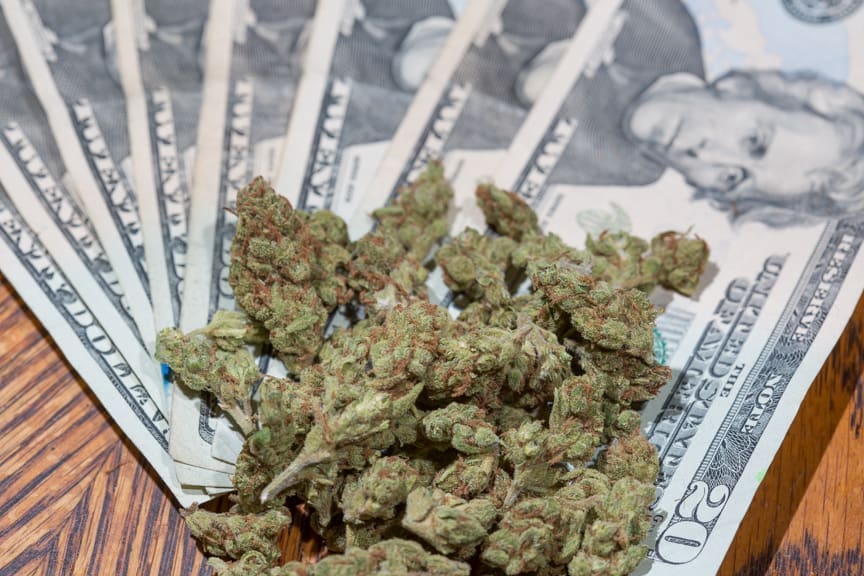
“The money in the fund will remain unallocated until federal law changes.”
By Nicole Blevins, Mountain State Spotlight
This story was originally published by Mountain State Spotlight. Get stories like this delivered to your email inbox once a week; sign up for the free newsletter at https://mountainstatespotlight.org/newsletter.
Since the state’s first dispensary opened in 2021, West Virginia’s medical cannabis program has collected roughly $34 million in taxes, licensing fees and interest.
State law requires the money be used to create a medical cannabis research program, provide resources to residents with substance use disorder and fund law enforcement training.
But almost four years later, the money sits unspent.
Cannabis is still an illegal drug at the federal level. Traditional banks were unwilling to hold the state’s cannabis dollars, so they’re held at a credit union under control of the state treasurer’s office.
“The money in the fund will remain unallocated until federal law changes,” said treasurer’s office spokesperson Carrie Hodousek.
But other states with legal cannabis markets, including Maryland, Pennsylvania and Ohio, are spending their tax revenue.
A medical cannabis rollout made rocky by federal law and fearful banks
In 1970, the federal government classified marijuana as a Schedule I drug, a designation that finds it has no medical use and a high potential for misuse. Today, 40 states have legalized recreational or medical cannabis use despite the federal classification.
West Virginia’s 2017 Medical Cannabis Act allowed licensed physicians to issue medical cannabis cards to patients seeking alternative treatment for serious health conditions.
But it took over four years from the time the bill was passed for patients to get medical cannabis from a dispensary in West Virginia.
In 2018, then-Treasurer John Perdue said banks refused to hold funds from the program because they did not want to be held liable for interacting with money from an illegal substance.
Perdue sought an advisory opinion from then-Attorney General Patrick Morrisey to determine the best way to legally handle the program’s finances. Morrisey found the federal government had not gone after other states with medical cannabis markets, but there was no guarantee it would continue to refrain from doing so.
Licenses for growers, processors or dispensaries had not been dispersed by the state because there was nowhere to collect the permit fees. It wasn’t until March 2019 that lawmakers changed the state law to allow a credit union to hold the money.
Element Federal Credit Union—which was already planning to provide banking services to the state’s cannabis industry—won the bid to hold the tax dollars.
“It’s up to the individual bank if they want to take that risk. It’s a big risk because it’s federally illegal,” said CEO Linda Bodie. “We obviously took the risk.”
Former delegate and then-Republican candidate for state treasurer Riley Moore criticized Perdue for the continued delay in the program in a 2019 opinion published in the Charleston Gazette-Mail.
“Clearly, West Virginia needs a modernized, transparent and proactive state treasurer’s office,” he wrote. Moore defeated Perdue in the 2020 election.
After planting, harvesting and processing cannabis into consumable products, the first dispensary opened in November 2021 and began generating tax revenue.
During Moore’s four-year term as state treasurer, the medical cannabis program generated millions of dollars that went into the fund but were not spent. Moore, now a U.S. representative, did not respond to questions about the fund.
Lawmakers who helped write the state’s medical cannabis laws were surprised that the money is sitting at a credit union.
“I was not aware of that,” said Del. Mike Pushkin, D-Kanawha, “That’s the first I’ve heard of it, that it wasn’t being spent.”
Pushkin helped craft the 2019 cannabis banking legislation. He said there were no discussions he was involved in during that legislative session, or after, that suggested the fund would stall.
Sen. Mike Woelfel, D-Cabell, who wrote the original version of the Medical Cannabis Act, also said he wasn’t aware the money was stockpiling. After learning the status of the fund, he spoke with the current treasurer.
“I think this has come to the attention of Treasurer Larry Pack, and I think he’s summoned the experts to find a way to meet the expectations of the bill and to make this work,” Woelfel said.
As West Virginia sits on its funds, other states put cannabis taxes to use
Meanwhile, Maryland, Ohio and Pennsylvania all have legal cannabis markets and are distributing the tax revenue as it’s designated in state laws.
Ohio has distributed over $35 million to its general fund, and nearly two-thirds of the cannabis tax revenue will be allocated to its general fund beginning this fiscal year. But the rest, which goes to Ohio’s Host Community Cannabis Fund, has not been disbursed to individual municipalities due to a lack of appropriation by the state legislature, said Ohio Office of Budget and Management spokesperson Pete LuPiba.
In Pennsylvania, medical marijuana revenue has supported drug and alcohol programs and its Commission on Crime and Delinquency, said Pennsylvania Department of Revenue spokesperson Jeffrey Johnson. The state has not been able to establish a medical marijuana research program because of complications with federal law.
A third of Maryland’s cannabis tax revenue goes to a fund aimed to help communities disproportionately affected by drug use. The rest goes to the state’s general budget, counties and public health efforts.
Andrew Livingston, Director of Economics and Market Analysis at Vicente LLP, a national cannabis law firm, said he is not aware of a systemic issue where cannabis tax revenue cannot be spent in states with legal markets.
How could allocations from the fund help West Virginians now?
Woelfel introduced the Medical Cannabis Act with a key requirement to establish a medical cannabis research program. It would determine whether the medical cannabis program was helping and where it could be improved.
“To me, that was a very important part of the bill,” he said.
State Department of Health spokesperson Gailyn Markham said it has not been created due to the inability to access funds.
If West Virginia distributed the entire fund today, roughly $19 million would go back to the Bureau for Public Health within the Department of Health, nearly $8 million to the Fight Substance Abuse Fund overseen by the Department of Health, $6 million to the Division of Justice and Community Services and $1.5 million to a special revenue account for law enforcement professional training and professional development programs.
Dr. Matthew Christiansen, former state health officer from 2023-2024, said he asked but couldn’t get a clear answer of how much money was in the fund.
He said West Virginia has struggled more than any other state in the nation with addiction, and there is a lack of sustainable funding for treatment and recovery programs. Federal funding has declined, but he said the tax revenue could ease the gap.
Federal cuts include money to the Department of Justice’s Office of Justice Programs, which helped divert people with an intoxication or a possession charge into treatment instead of prison.
Christiansen said the state’s revenue from medical cannabis could be used in other ways as well.
“It’s a significant amount of money. It could be used to help quite a few people, or stand up specific programs for a period of years that would make a positive impact for people with addiction,” he said. “It’s nothing to sneeze at.”
He said this fund could also provide access to resources for the small percentage of medical cannabis patients who develop a cannabis use disorder.
Elizabeth Shahan, executive director of West Virginia Prevention Solutions, a nonprofit focused on substance use prevention, said the organization has struggled with the loss of federal funding to address the needs of West Virginians.
The West Virginia Division of Tobacco Prevention RAZE program closed this summer. It was a program aimed to educate youth about the dangers of smoking, vaping and tobacco use. West Virginia is currently leading the nation in teen vaping, according to a study conducted by Drugwatch.
“That fund alone could secure that evidence-based prevention education in school systems,” Shahan said.
Medical cannabis was brought to the state as an economic driver, she said, and businesses, prevention programs and medical cannabis patients all have a shared value to prevent harm in young populations.
“Every dollar that’s available for prevention really needs to be invested in prevention,” Shahan said. “If it sits, it doesn’t do anyone any good.”
This article first appeared on Mountain State Spotlight and is republished here under a Creative Commons Attribution-NoDerivatives 4.0 International License.![]()

Author: mscannabiz.com
MScannaBIZ for all you Mississippi Cannabis News and Information.
featured
Frequent Marijuana Use Is Tied To Lower Risk Of Liver Disease From Alcohol, New Study Finds
Published
3 hours agoon
October 23, 2025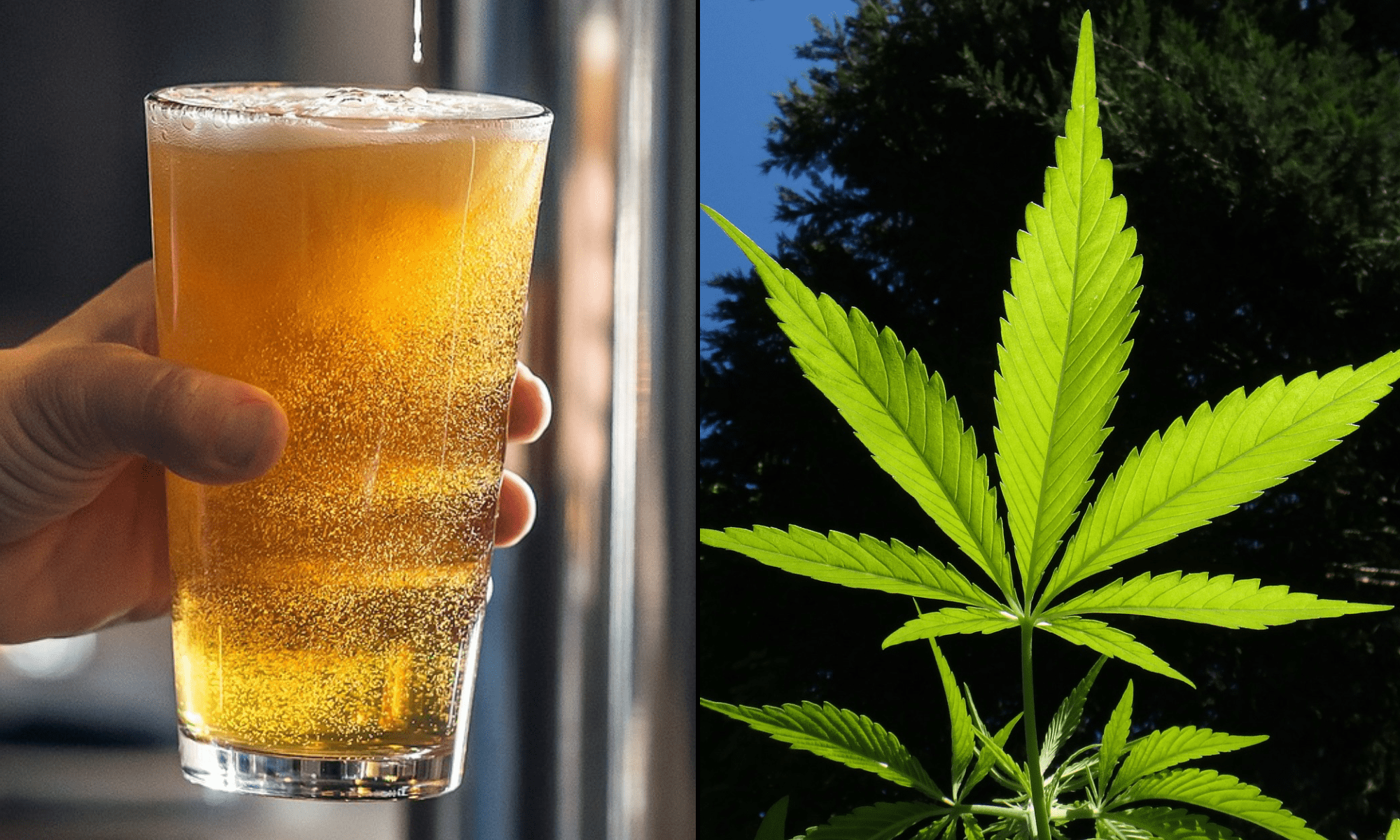
Frequent use of marijuana is associated with a reduced risk of developing liver disease from alcohol, according to a new study. In fact, people who meet the criteria for “cannabis use disorder,” or CUD, showed lower risk compared to both infrequent cannabis users and those who don’t consume marijuana at all.
The novel study, published this week in the journal Liver International, analyzed rates of alcohol-associated liver disease (ALD) among 66,228 patients from 2010 to 2022. A team led by researchers at Virginia Commonwealth University put patients into one of three categories: those with CUD who are clinically defined as being dependent on marijuana, infrequent cannabis users (CU) and non-users.
“In this propensity-matched cohort study of patients with AUD, cannabis use was associated with a reduced risk of ALD, with the greatest risk reduction seen in patients with CUD compared to CU and non-CU,” the study says. “Our findings suggest that modulation of cannabinoid receptors may offer a new target for the development of pharmacological therapies for ALD.”
“Cannabis use was linked to lower risks of ALD, liver-related complications and death compared to non-cannabis users.”
Based on previous research focusing on CBD, the study authors theorized that the non-intoxicating cannabinoid could be a driving force behind this medical association—though “its clinical use remains limited.”
After adjusting for various factors, the study findings “suggest the cannabinoid system may represent a promising therapeutic target for ALD,” they said.
Specifically, the researchers found that cannabis use is associated with a “40 percent hazard reduction in the composite ALD, including alcohol-associated steatosis, hepatitis, fibrosis and cirrhosis, as well as a 17 percent reduction in hepatic decompensation, and a 14 percent reduction in all-cause mortality.”
“The risk reduction was observed across the ALD stages with a gradient of effect between CU and CUD. This pattern may suggest a dose–response relationship, though its interpretation remains uncertain, as it relies on diagnostic codes with no direct measures of cannabis consumption. Furthermore, while our findings suggest a potential protective association between cannabis use and ALD, this must be interpreted with caution, given the well-established health risks of cannabis, including psychiatric disorders such as schizophrenia and cognitive impairment.”
“The observed protective association [of cannabis] was consistent across the ALD spectrum, even among patients with lower cardiometabolic risk profiles,” it said. “Furthermore, the inclusion of both positive and negative control outcomes strengthens the internal validity of the findings.”
“Given the expanding body of experimental data supporting the hepatoprotective properties of CBD and its favourable safety profile, further studies evaluating its impact in ALD, using appropriate dosing and treatment duration, are both justified and warranted,” the study concluded.
“Based on preclinical evidence, the observed protective effect is possibly attributable to CBD.”
On a related note, a survey published earlier this month found that nearly four in five adults who drink cannabis-infused beverages say they’ve reduced their alcohol intake—and more than a fifth have quit drinking alcohol altogether.
Meanwhile, on the list of activities that Americans say is dangerous for pregnant women to engage in, using marijuana falls below drinking alcohol or smoking cigarettes, according to a new poll.
Marijuana use is linked to lower alcohol intake and diminished cravings in heavy drinkers, according to a recent federally funded scientific paper.
In a study earlier this year, scientists at the University of Sydney published a paper investigating the theory that non-intoxicating cannabidiol could mitigate problematic drinking issues. The research, published in the journal British Journal of Pharmacology with funding from the Australian National Health and Medical Research Council, found that “CBD represents a promising candidate to reduce voluntary alcohol consumption.”
According to a federally funded study published in the journal Nature earlier this year, CBD has potential to treat alcohol use disorder by reducing withdrawal symptoms and lowering the risk of relapse while also providing neuroprotective effects. The results of that study “underscore CBD’s potential therapeutic utility for alcohol use disorder (AUD) and provide mechanistic insights into its actions,” they noted.
This also comes at a time when younger Americans are increasingly using cannabis-infused beverages as a substitute for alcohol—with one in three millennials and Gen Z workers choosing THC drinks over booze for after-work activities like happy hours, according to a new poll of 1,000 young professionals.

Author: mscannabiz.com
MScannaBIZ for all you Mississippi Cannabis News and Information.

Millennials Are Spending Big on Luxury Travel

West Virginia Medical Marijuana Revenue Is Supposed To Support Drug Treatment Programs, But Sits Unspent As Officials Worry About Federal Prohibition

Frequent Marijuana Use Is Tied To Lower Risk Of Liver Disease From Alcohol, New Study Finds

Ohio bill to scale back cannabis legalization passed by House (Newsletter: October 23, 2025)

FDA Weighs Petition On ‘Significant Harm’ Of Marijuana Hair Testing Device’s Positive Results From Secondhand Smoke

Wisconsin Lawmakers Rally for Medical Cannabis Legalization in Committee Hearing

Massachusetts Campaign To Roll Back Marijuana Legalization Law Is ‘On Track’ To Make 2026 Ballot, Spokesperson Says

Village Farms Introduces Industry-First, One-Way Aroma Valve in Cannabis Packaging

Ohio House Passes Bill To Remove Voter-Approved Marijuana Legalization Protections And Restrict Hemp Market

Sorting Robotics Becomes Cannabis Manufacturing’s First True Systems Integrator

Wisconsin Senators Hold Hearing On GOP Leader’s New Medical Marijuana Legalization Bill

Tariffs And Visas Add To The Cannabis Industry’s Misery

Rhode Island Cannabis Chair Steps Down; Adult-Use Dispensary Awards Months Away

How America Accidentally Legalized Lab Cannabis

New Hampshire Lawmakers Announce Plans For Marijuana, Psychedelics And Hemp Bills For 2026 Session

Metrc Announces In-Person Events in New York to Prepare Licensees For Track-and-Trace Implementation

Top Rhode Island Marijuana Regulator Steps Down Ahead Of Possible Campaign For Attorney General

Lifestyle Brand Cookies Launches in Brazil With Premium Wellness Products

Alcohol companies lobby Congress on cannabis drinks (Newsletter: October 22, 2025)

Millennials Are Spending Big on Luxury Travel

Ohio Lawmakers Advance Bill To Scale Back Voter-Approved Marijuana Law And Impose Hemp Regulations

Data Confirms Cannabis Is Safer Than Alcohol

American Council of Cannabis Medicine Unveils Major Industry Initiative to Expand Medical Cannabis Access

Scientists Develop New Class Of CBD Using A Common Kitchen Spice—Not Cannabis

Alert: Department of Cannabis Control updates data dashboards with full data for 2023

Connecticut Appoints The US’s First Cannabis Ombudsperson – Yes there is a pun in there and I’m Sure Erin Kirk Is Going To Hear It More Than Once!

5 best CBD creams of 2024 by Leafly

Recreational cannabis on ballot for third time in South Dakota

EU initiative begins bid to open access to psychedelic therapies
New Study Analyzes the Effects of THCV, CBD on Weight Loss

Free delta-9 gummies from Bay Smokes

5 best autoflower seed banks of 2024 by Leafly

Discover New York’s dankest cannabis brands [September 2024]

May 2024 Leafly HighLight: Pink Runtz strain

Press Release: CANNRA Calls for Farm Bill to Clarify Existing State Authority to Regulate Hemp Products

5 best THC drinks of 2024 by Leafly

Local medical cannabis dispensary reacts to MSDH pulling Rapid Analytics License – WLBT

6 best CBD gummies of 2024 by Leafly

Curaleaf Start Process Of Getting Their Claws Into The UK’s National Health System – With Former MP (Resigned Today 30/5/24) As The Front Man

Horn Lake denies cannabis dispensary request to allow sale of drug paraphernalia and Sunday sales | News

5 best delta-9 THC gummies of 2024 by Leafly

Mississippi city official pleads guilty to selling fake CBD products

The Daily Hit: October 2, 2024

Nevada CCB to Accept Applications for Cannabis Establishments in White Pine County – “Only one cultivation and one production license will be awarded in White Pine County”

5 best THCA flower of 2024 by Leafly

Weekly Update: Monday, May 13, 2024 including, New Guide for Renewals & May Board meeting application deadline

6 best hemp pre-rolls of 2024 by Leafly

PRESS RELEASE : Justice Department Submits Proposed Regulation to Reschedule Marijuana
Trending
-

 California Cannabis Updates1 year ago
California Cannabis Updates1 year agoAlert: Department of Cannabis Control updates data dashboards with full data for 2023
-

 Breaking News1 year ago
Breaking News1 year agoConnecticut Appoints The US’s First Cannabis Ombudsperson – Yes there is a pun in there and I’m Sure Erin Kirk Is Going To Hear It More Than Once!
-

 best list1 year ago
best list1 year ago5 best CBD creams of 2024 by Leafly
-

 Business1 year ago
Business1 year agoRecreational cannabis on ballot for third time in South Dakota
-

 Business1 year ago
Business1 year agoEU initiative begins bid to open access to psychedelic therapies
-

 cbd1 year ago
cbd1 year agoNew Study Analyzes the Effects of THCV, CBD on Weight Loss
-

 Bay Smokes1 year ago
Bay Smokes1 year agoFree delta-9 gummies from Bay Smokes
-

 autoflower seeds1 year ago
autoflower seeds1 year ago5 best autoflower seed banks of 2024 by Leafly

